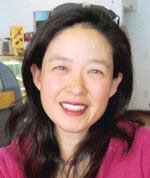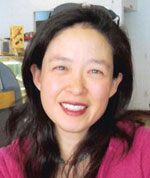Column: Adventures in Multicultural Living
“I’m not your ‘Mom!’” my girlfriend finally exploded at her kids.
The teenagers looked puzzled, “Then, whose mom are you?”
I know what she means, though. She does not want her children to call her the English word, “Mom,” but to call her by the Chinese term, “Ma Ma.” The dictionary may give the same meaning for both terms, but “Mom” does not have the same feel, the same nuance, as “Ma Ma.” My children are not allowed to call me “Mom,” either.
The question of how to address people often comes up in our family. I teach my children to always address adults as “Mr.” or “Mrs.,” “Auntie” or “Uncle” – never by their first names. In our local Asian American communities and in Hawaii, it is common to address one’s elders as “Auntie” or “Uncle,” even “Grandma” or “Grandpa.” It creates instant familiarity, instant respect, an instant family-style relationship where adults look out for children and children look up to adults. [Full Story]







